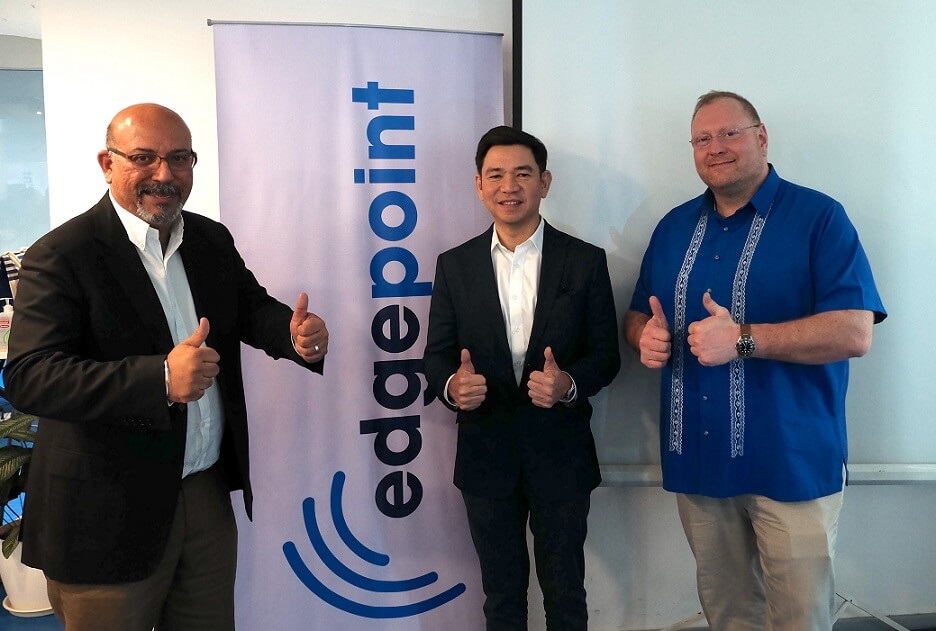This is in accordance with the Department of Information and Communications Technology (DICTPolicy )'s Shared Passive Telecommunications Tower Infrastructure (Common Towers policy) to improve Philippine communications and digitalization.
As an independent towerco, EdgePoint Philippines can contribute to the country's telecommunications industry, according to Suresh Sidhu, CEO of EdgePoint Infrastructure, and Alexander Kiel, CEO of EdgePoint Philippines.
EdgePoint Philippines entered the Philippine market in April through a Sale & Leaseback agreement for 2,934 Luzon Island towers with Smart Communications Inc. (“Smart”) and Digitel Mobile Philippines, Inc. (“DMPI”), both wholly owned wireless communications and digital services subsidiaries of PLDT Inc.
After the sale, Smart is leasing the towers from EdgePoint Philippines for mobile communications and high-speed internet. All towers should be handed over in the first half of 2023. To date, EdgePoint Philippines has 2,232 tower locations.
Suresh Sidhu Chief Executive Officer & Founder, EdgePoint said “Our market position as an independent towerco aligns well with the DICT’s Common Towers policy that seeks to enhance connectivity while easing mobile network operators from the heavy capital expenditure required for building communications towers, allowing them to focus on improving services and reaching more underserved areas. The number of internet users in the Philippines has more than tripled in the past decade from 23 million in 2010 to 76 million in 2022 and significant investments are needed to meet the demands of this growth. The Philippines has a dense number of users per tower which affects overall user experience, and the country needs a large number of new towers built to fill this gap. EdgePoint is ready to bring investment, innovation, best practices, and expertise into the Philippines to address the nation’s connectivity needs. We are focused on driving the deployment of world-class connectivity solutions in the telecommunications landscapes across our footprint and being the leading 5G enabler for our mobile network operators”.
Kiel added that while EdgePoint Philippines has been focused on deploying the right shared infrastructure for mobile network operators, they are also committed to optimizing the vast local experience available to drive growth in the country. “We want to be a part of the future of telecommunications in the Philippines, as we enhance connectivity in the country, we want to also develop the ecosystem, create new job opportunities and introduce green solutions and practices. Since we entered the market, we have created more than 100 new jobs directly and more than 1000 indirectly, and we expect to double this number by end of 2024. As we bring our regional best practices to the country, we plan to leverage the strengths of our local network of vendors, which has grown significantly since we started. Our role as nation-building partners goes beyond telecommunications infrastructure, as we commit to strengthening the economy by building a reliable supply chain of local vendors and suppliers. The recent pandemic has shown us the importance of self-sufficiency within the industry, and we hope to create an ecosystem that can operate independently from other countries and markets”.
Supporting the country’s recently announced National Broadband Plan (NBP) Kiel said “In the Philippines, there is an average of 4,090 users per tower, with mobile download speeds of 22.5 Mbps. The Philippines has historically lagged in ASEAN, but we are now seeing much-needed policy reforms and new investments in infrastructure, in line with the government's push to ensure that all Filipinos have access to broadband capability.
EdgePoint's capabilities match the NBP, and the company is dedicated to working with the government to implement the proper infrastructure and sustainable, environmentally friendly solutions to ensure accessible, faster, and cheaper internet access. In 2023. They will launch their first trial locations using a mix of renewable energy and efficient generators. If successful, it will expand the rollout. These energy-efficient solutions are vital not only for the environment but also for bridging the digital gap by expanding our communication networks into underserved areas.
In five years, the Digital Cities 2025 project would transform high-potential rural communities into bustling IT and Business Process Management (IT-BPM) hubs to improve the Philippine economy.
EdgePoint builds and leases shared fiber-integrated, cutting-edge telecom buildings and offers small cells and in-building systems. Analytics and digital technologies help the organization scale and innovate to become an industry leader. Beyond towers, it builds, operates, and maintains private networks, edge computing, open RAN, small cells, and IBC solutions.
For more tech news and gadget reviews, please follow us on Facebook (facebook.com/Adobotech), YouTube (Adobotech TechBlog), and Twitter (@adobotech).

















No comments:
Post a Comment